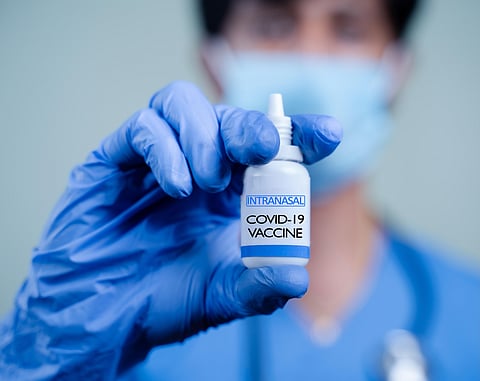TUESDAY, Oct. 17, 2023 (HealthDay News) -- Two doses of a novel intranasal live-attenuated COVID-19 vaccine, CoviLiv, induce poly-antigenic immune response, according to a study presented at the annual meeting of the Infectious Diseases Society of America (IDWeek), held from Oct. 11 to 15 in Boston.
Johanna Kaufmann, Ph.D., from Codagenix in Cambridge, Massachusetts, and colleagues characterized humoral immune responses in sera from six participants (at days 1, 29, and 57) with a spike-specific immunoglobulin G (IgG) enzyme-linked immunosorbent assay and microneutralization (MNT) and pseudovirus neutralization (PVN) assays. In peripheral blood mononuclear cells, T-cell functionality was analyzed.
The researchers found that all participants exceeded a twofold increase in spike-specific IgG with a geometric mean fold rise of 19.5 on day 57 after two doses of CoviLiv. At this time point, neutralizing antibodies were induced 2.6- and 4.9-fold using MNT and PVN, respectively. On day 36 after vaccination, the interferon-γ response by ELISpot after restimulation with the SNMO peptide pool increased 4.5- and 2.5-fold in the two- and one-dose cohorts, respectively. After placebo vaccination or in any group after restimulation with spike-only peptides, there was no increase seen in interferon-γ response. Significant regimen-dependent SNMO-specific increases in interferon-γ, interleukin-2, and tumor necrosis factor-α response was confirmed by intracellular cytokine staining, especially in the CD4+ T-cell subset, including induction of polyfunctional CD4+ T cells.
"The study findings provide a glimpse into what could be the next generation of COVID-19 vaccines that provide differentiated protection to more people," Kaufmann said in a statement. "Vaccine administration by nose and easier storage can increase access to vaccinations for underserved areas across the world."
Codagenix engineered the CoviLiv vaccine.
Press Release
More Information


